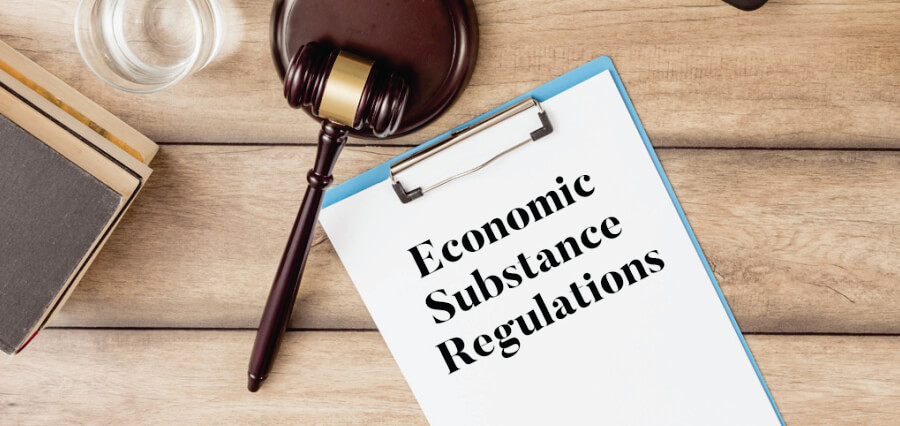The UAE issued a Law on Economic Matters in April 2019, amended by Cabinet Resolution No. 57 of 2020 in August 2020, which introduced a requirement for UAE companies to maintain a full “economic presence” in the UAE concerning the activities they carry out.
The UAE’s economic requirements apply to all UAE offshore companies and local tax-free companies, and certain other types of businesses that perform one or more “essential activities” for the year’s budget starting on or after January 1, 2019. Companies that meet the conditions to be treated as “exempt” do not need to demonstrate their economic presence in the UAE. That being said, these companies are legally obligated to submit a letter providing sufficient evidence to support their exemption status.
Introducing economic requirements that support the UAE and other jurisdictions that have recently adopted economic policies (e.g., Bermudas, Cayman Islands, etc.) mobile practice. Activities as “zero or nominal tax rates” without corresponding local economic activities.
If you are a UAE entity, it is important to be aware of the requirements for economic substance notification and reporting. The UAE has implemented these requirements as part of its efforts to align with international tax standards and to demonstrate that it is a jurisdiction that is committed to transparency and fair taxation.
Here are the five key points that UAE entities need to know about economic substance notification and reporting:
- Economic substance is determined based on multiple factors, which include the amount of core income-generating activities conducted in the UAE, the level of expenditure incurred in the UAE, and the level of employment in the UAE. Normally, entities can be considered to have adequate economic substance as long as they carry out their activities in a way that is consistent with the level of activity that would be expected for a similar entity in the UAE. This means that the entity must have a physical presence in the UAE and must carry out its relevant activities in a meaningful way. Relevant activities are defined as one of the following:
- Banking
- Insurance
- Investment fund management
- Lease-finance
- Shipping
- Company Holding
- Intellectual property
- Distribution
- Service Center
UAE entities that are subject to the economic substance regulations are required to notify the relevant authority of their activities and their economic substance within 12 months of the end of the relevant financial period. This notification must be made through the online portal provided by the relevant authority and must include information about the entity’s activities, as well as details of its economic substance in the UAE. This information can and will be used by the relevant authority to determine whether the entity is compliant with the economic substance regulations.
To comply with the economic substance requirements, a UAE entity must have adequate economic levy in the UAE with its relevant activities. This means that the entity must conduct core income-generating activities (CIGAs) in the UAE that must be directed and managed in the UAE. The entity must also have an adequate level of qualified employees, expenditure as well as physical assets in the UAE that coincides with its CIGAs.
Core income-generating activities (CIGAs) are the primary activities that an entity conducts to generate income. CIGAs are determined on a case-by-case basis and may vary depending on the specific nature of the entity and its activities. In general, CIGAs are likely to include activities such as decision-making, the management of assets and liabilities, and the assumption of risk to the entity’s income-generating activities.
A UAE entity needs to identify and conduct CIGAs in the UAE to comply with the economic substance requirements and avoid penalties and sanctions. The entity should also have an adequate level of qualified employees, expenditure, and physical assets in the UAE regarding its CIGAs.
Failure to comply with economic substance regulations can result in penalties and reputational damage. It is important for UAE entities to understand their obligations and to ensure that they are meeting the requirements for economic substance notification and reporting.
After submitting the notification, the entity must also prepare a report on its compliance with the economic substance requirements for each relevant financial year. The report must be submitted to the MoF within 12 months of the end of the financial year. The MoF may request additional information or documents to support the entity’s compliance with the economic substance requirements.
The economic substance regulations in the UAE are designed to promote transparency and fair taxation. UAE-based entities are required to inform the relevant authorities of their activities and economic gains, maintain appropriate and accurate records and submit an annual economic substance return. It is imperative for all UAE entities to understand their legal obligations and to ensure that they are compliant with the requirements mandated by the law.





